Movie Review: 'Alice' Starring Keke Palmer
Alice wants to be empowering but comes off as under-cooked and simple.
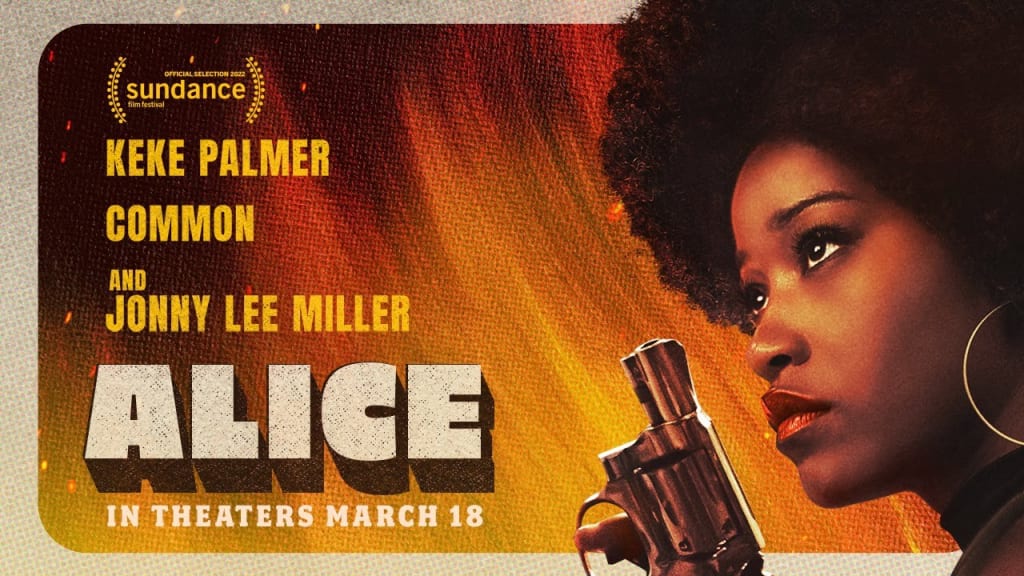
Alice stars Keke Palmer as a woman named Alice who has been raised as a slave. Alice is a captive on a Georgia plantation so deep in the woods that word of the end of the Civil War never reached the people held captive there. We know this because we’ve seen the trailer and therein lies a fatal flaw in the film-making concept behind Alice. The movie drags on for nearly 40 minutes crafting an air of mystery and secrets while illustrating life on the plantation as if setting us up for a shocking reveal that we're already fully aware of.
Perhaps this an issue of studio marketing not working with the filmmaker before launching into a promotional campaign, but regardless it makes Alice a tough sit on top of it already being a questionable premise from the start. Alice plays like a mixture of the influence of M Night Shyamalan and Quentin Tarentino-light with Shyamalan’s commercial horror crossed with a neutered version of Tarentino’s transgressive politics.
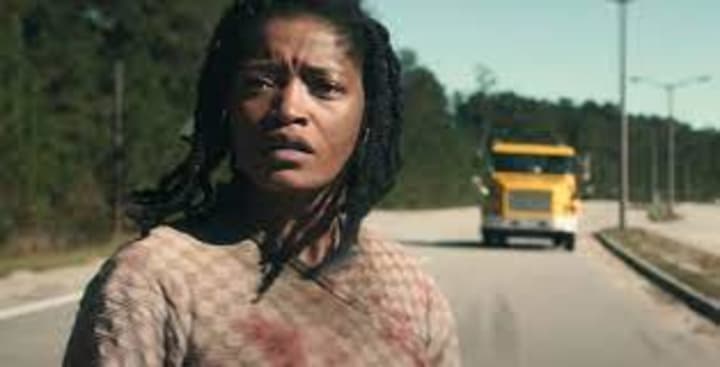
So, we are introduced to Alice as a member of the ‘household staff,’ a member of the domestic cattle, as her owner, Mr Bennett (Johnny Lee Miller), describes her. It’s implied that Mr. Bennett has been sexually assaulting Alice but this plot point is one of many that the movie is far too squeamish to make plain. Secretly, Alice has been secretly sneaking out of the main home to be with Joseph (Gaius Charles).
Alice and Joseph are wed in secret and they are making plans to escape together when Joseph takes an opportunity to run away alone and is shot and seemingly killed. Distraught, Alice fights back against Mr. Bennett. After being subdued and tortured, made to be tied to a pole in the yard for an unspecified period of time, Alice uses Mr. Bennett’s affection for her, against him and makes a daring daylight escape.
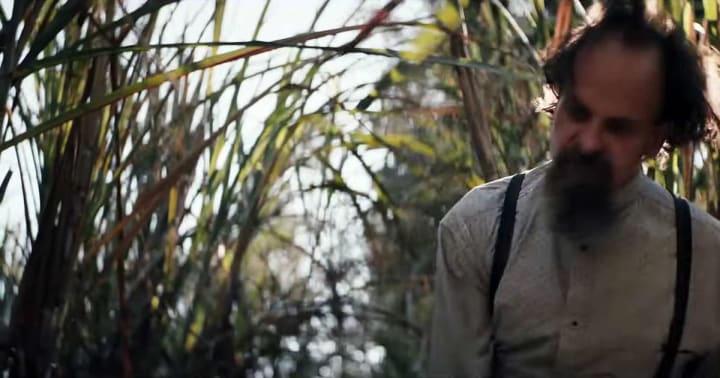
Running through the woods for what seems like just a few minutes, Alice arrives at an unexpected and inexplicable sight, a highway with vehicles on it. Alice stumbles onto the road and is nearly squashed by a truck driven by Frank (Common). Frank picks up Alice and takes her to the hospital before coming back minutes later to take her out of the hospital and bring her to his home. It’s a long story, something about his mom, not important.
It is while staying with Frank that Alice gets her hands on a set of Funk and Wagnalls encyclopedias and finds out that slaves were freed more than a century before. Issues of Jet Magazine and Rolling Stone catch Alice up on the style of the day and soon she’s going to see a Pam Grier movie and begin forming the plan that drives the rest of the movie, a plan to rescue her former fellow slaves and kill Mr. Bennett.
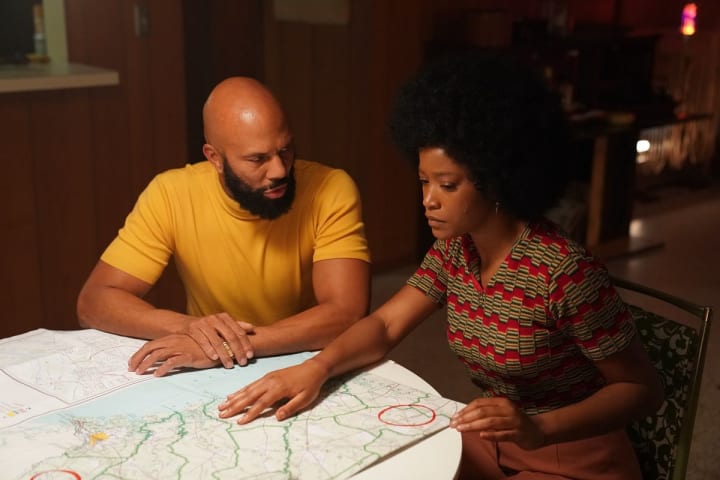
There are elements here that could work as a transgressive commentary on race and America but mostly, Alice feels like the wrong kind of exploitation movie. Everything is so incompetently staged that the impact is blunted. The language is cruel and yet feels PG-13 in a way that undermines the intended cruelty. The violence and vengeance too feel neutered, as if murdering a slave owning monster needed to filmed in a way doesn’t offend too many people.
The conceit of a woman who spent her entire life being tormented, tortured, and traumatized who sees one Pam Grier movie and commits to a plan of vengeance only after she gets a cute 70’s chick makeover is bad in a number of ways. It treats the horrific crimes of slavery as a plot point rather than the collective stain on the American soul it truly is, and it makes empowerment into a costume.
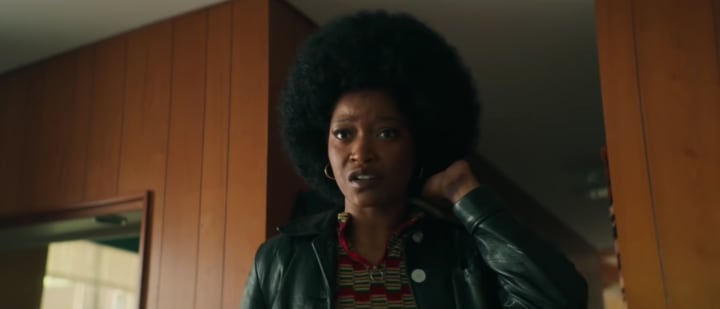
Say what you will about the problematic elements of Django Unchained, that movie was visceral, it was unapologetic and it took its characters seriously. Django Unchained is a blunt instrument that confronts you with the horrors of slavery while also crafting a stylized story of vengeance that pleases the lizard part of your brain that wants to see bad things happen to bad people.
Alice appears to engage in a bizarre form of both-sides-ism as if to say, ‘yeah slavery was bad but doesn’t this woman look dope in 70s gear, also she doesn’t really kill anyone, not really, not until she like has to.’ There is no one way to portray slavery on film but when it is done, the filmmakers need to treat it with care, with gravity, and they should be absolutely certain why they want to use slavery in their movie. The makers of Alice appear to have carelessly stopped at the concept of a plantation living into the 1970s and one slave taking revenge.
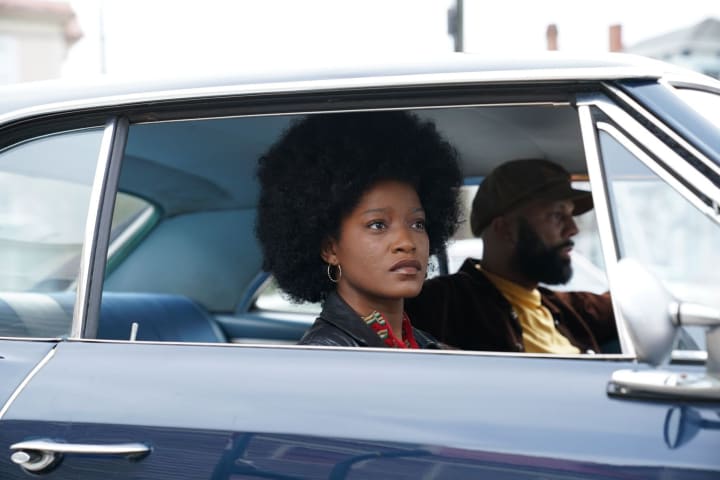
Alice is available now via many streaming rental outlets. I don’t recommend it but it’s available.
About the Creator
Sean Patrick
Hello, my name is Sean Patrick He/Him, and I am a film critic and podcast host for the I Hate Critics Movie Review Podcast I am a voting member of the Critics Choice Association, the group behind the annual Critics Choice Awards.






Comments
There are no comments for this story
Be the first to respond and start the conversation.